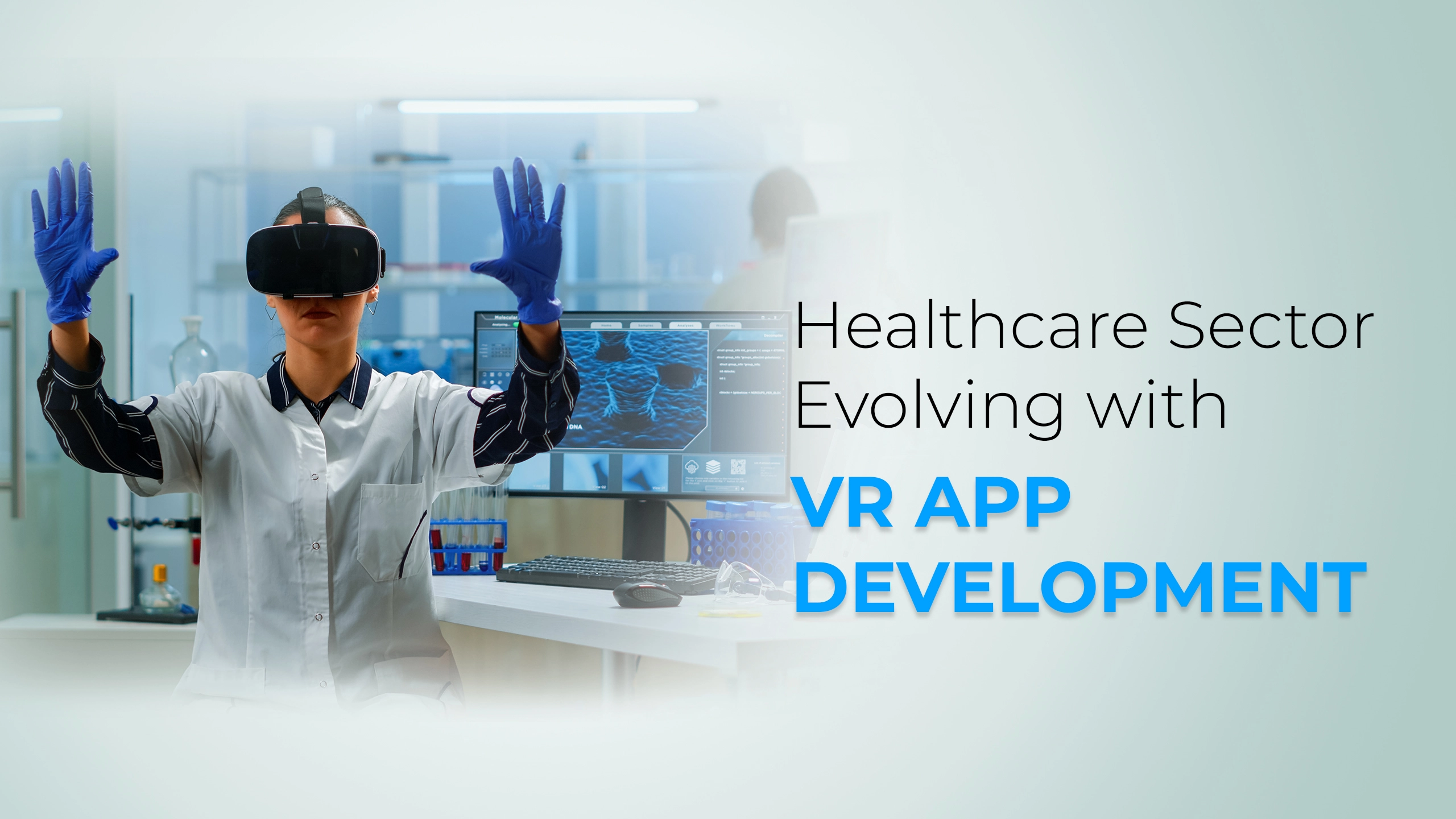In today’s rapidly evolving technological landscape, virtual reality (VR) app development has emerged as a transformative force, reshaping various industries, including healthcare. The integration of VR into healthcare applications is fostering groundbreaking advancements that are enhancing patient care, medical training, and overall healthcare delivery. In this article, we will explore how the healthcare sector is evolving through VR app development, revolutionizing the way we approach medical treatment and education.
VR App Development in Healthcare
The healthcare sector is no stranger to innovation, continually adapting to new technologies to improve patient outcomes and streamline medical processes. VR app development is one such innovation that holds immense promise for the industry. With VR, healthcare providers can offer more immersive and personalized experiences to patients while revolutionizing medical training.
Enhanced Patient Care
One of the most significant impacts of VR app development in healthcare is its potential to enhance patient care. VR applications can transport patients to a virtual world, providing therapeutic experiences that reduce pain, anxiety, and stress. For instance, VR is being used to distract patients during painful procedures, such as wound dressings or injections, by immersing them in calming environments.
Moreover, VR is proving to be a valuable tool for rehabilitation. Patients recovering from injuries or surgeries can engage in virtual exercises and activities tailored to their specific needs. This not only makes the rehabilitation process more engaging but also enhances patient compliance and motivation.
Virtual Reality in Medical Training
Medical education has traditionally relied on textbooks, cadaver labs, and observation of surgeries. However, VR app development is revolutionizing medical training by offering realistic and interactive simulations. Medical students and professionals can now practice procedures and surgeries in a safe and controlled virtual environment.
VR simulations enable learners to make mistakes without real-world consequences, fostering a deeper understanding of complex medical procedures. This technology also provides an opportunity for continuous learning and skill enhancement, as medical professionals can revisit and refine their skills at any time.
Telemedicine and Remote Consultations
The advent of telemedicine has gained significant momentum in recent years, especially during the COVID-19 pandemic. VR app development plays a crucial role in enhancing telemedicine experiences. Patients can have virtual consultations with healthcare providers from the comfort of their homes, creating a more convenient and accessible healthcare system.
Furthermore, VR can facilitate remote collaborative consultations among healthcare professionals. Surgeons, for instance, can use VR to consult with specialists from different parts of the world during complex procedures, improving patient outcomes through collective expertise.
Surgical Planning and Visualization
For surgeons, precision is paramount. VR app development allows for 3D visualization of patient anatomy, making surgical planning more accurate and efficient. Surgeons can explore and manipulate a patient’s virtual anatomy before entering the operating room, reducing the risk of surprises during surgery.
Additionally, VR-assisted surgeries are becoming more common. Surgeons can wear VR headsets during procedures to access real-time data, such as imaging scans and vital signs, without taking their eyes off the patient. This real-time information enhances surgical precision and patient safety.
Patient Education and Empowerment
Informed patients are more likely to actively participate in their healthcare decisions and follow treatment plans. VR app development enables healthcare providers to educate patients about their conditions and treatment options through immersive experiences. Patients can explore their own anatomy or view animated explanations of medical procedures, leading to better-informed decisions and increased confidence in their care.
Challenges and Future Prospects
While the healthcare sector is evolving with VR app development, it also faces challenges. High development costs, the need for specialized equipment, and concerns about data privacy and security are some of the hurdles that need to be addressed. Additionally, healthcare professionals require adequate training to harness the full potential of VR technology effectively.
Looking ahead, the future of VR in healthcare is promising. Advancements in hardware and software will likely make VR more accessible and cost-effective. As VR applications become more widespread, they have the potential to democratize healthcare by providing advanced medical services to underserved populations.
In conclusion, VR app development is ushering in a new era of healthcare. It is improving patient care, transforming medical training, and expanding the possibilities of telemedicine. As technology continues to advance, we can expect even more innovative applications of VR in healthcare, ultimately leading to better outcomes for patients and healthcare providers alike. VR is not just a tool; it’s a healthcare revolution.




